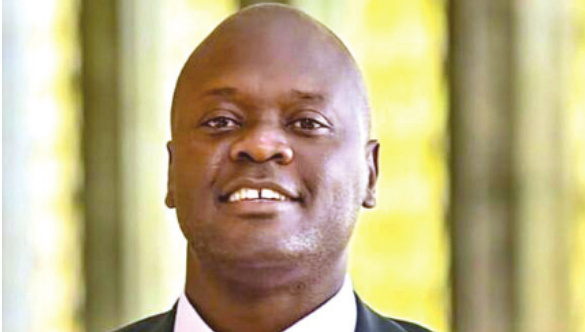Controversy is escalating over the government’s award of a multimillion tender for new HIV/AIDS testing kits, just days after the high court issued an order to halt the tender until the matter is fully heard.
Kitutu Chache. South MP, Antony Kibagendi questioned how the Ministry of Health awarded the tender to Trinity Biotech Manufacturing.
He claimed that several qualified potential suppliers were excluded, allegedly due to the influence of top officials at the Ministry of Health and the Kenya Medical Supplies Authority (KEMSA), to ensure Trinity Biotech Manufacturing secured the tender.
Kibagendi criticized Health Cabinet Secretary Susan Nakhumicha, accusing her of a lack of leadership and treating Kenyans and health professionals disdainfully.
The tender, valued at Sh365,698,103, was outlined in Circular Ref: MOH/ADM/1/1/12 dated August 22, 2023, and aimed at implementing a new testing algorithm.
This algorithm requires specific three-test procedures for both general and antenatal populations, with site-level implementation targeted for January 2024, overseen by the National AIDS and STI Control Program (NASCOP).
The shortlisted kits included One Step HIV ½ Whole Blood/Serum/Plasma by Guangzhou Wondfo Biotech Company Limited, Trinscreen HIV by Trinity Biotech Manufacturing, Determine HIV-1/2 by Abbott Diagnostics Medical Co. Ltd, Insti HIV-1/HIV-2 Antibody Test by BioLytical Laboratories Inc., Standard Q HIV ½ Ab 3-Line Test by SD Biosensor Inc., First Response HIV 1-2.0 Card Test (version 2.0) by Premier Medical Corporation Private Limited, Bioline HIV-1/2 3.0 by Abbott Diagnostics Korea Inc., and HIV ½ STAT-PAK by Chembio Diagnostic Systems.
For the past 15 years, Kenya has implemented a two-test strategy for HIV testing but is transitioning to the new three-test algorithm following WHO recommendations.
Kibagendi urged Principal Secretary of Medical Services, Harry Kimtai, to clarify the procurement and awarding process of the tender to Trinity Biotech Manufacturing, questioning whether due process was followed.
He also called on KEMSA’s management, led by CEO Andrew Mulwa, to explain whether they conducted due diligence on the company before awarding the contract.
Kibagendi claimed that despite the Ministry of Health conducting a pilot test with public funds, there were complaints of false results due to faulty HIV test kits.
He accused the Ministry of failing to adhere to WHO standards and not properly vetting the company’s operations and supply capabilities.
He described the procurement process as flawed, favoring unqualified parties, and cited this as another example of government malpractice, akin to the ongoing fake fertilizer scandal within the Ministry of Agriculture.
The court orders came after petitioners Kathambi Ruchiami and Guangzhou Wondfo Biotech Co. Ltd sued Attorney General Justin Muturi and Nakhumicha over the tender.
They claimed that a taskforce set up by the Ministry of Health to study the transition to the three-test algorithm violated Articles 35 and 46 (1) (b) of the Constitution of Kenya by not publicly disclosing the plan, existence, and conduct of the verification process.
The petitioners argued that the pilot program and verification process should have adhered to Article 43 (1) (a) to identify and classify the best assay kits in terms of specificity, sensitivity, performance, invalidity rate, and affordability.
The petition stated that every Kenyan is entitled to the highest attainable standard of health care, including access to the best HIV testing kits.
By recommending lower quality kits when better options exist, the taskforce violated the rights of Kenyans under Article 43 (1) (a). In response, MOH acting Director General Patrick Amoth argued that any procurement disputes should be addressed by the Public Procurement Administrative Review Board, as it is the appropriate forum for such challenges.
He defended the taskforce, asserting that it conducted a thorough scientific study to guide the Ministry in the adaptation process, aligning with WHO protocols on feasibility, acceptability, and operational issues.



